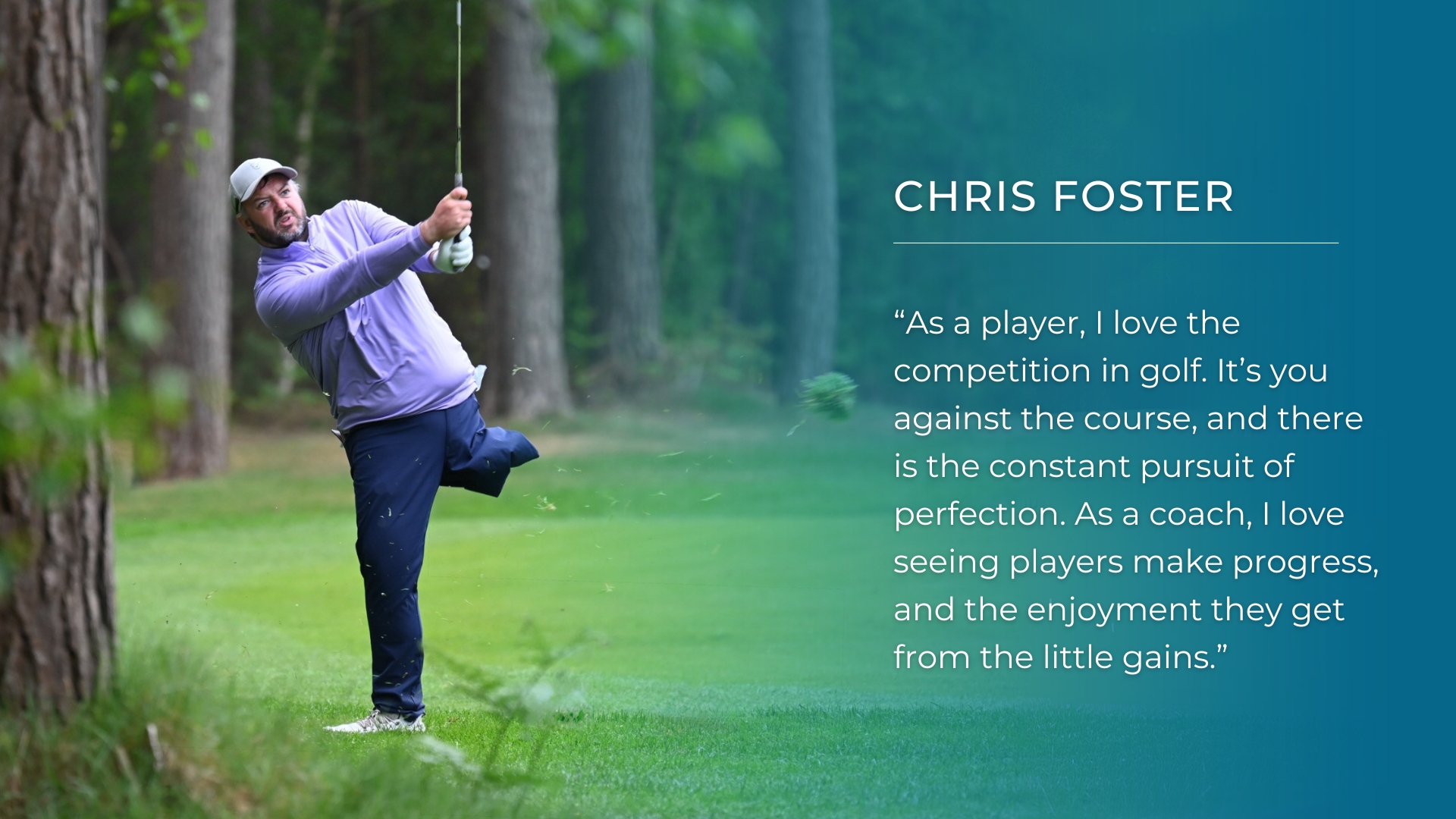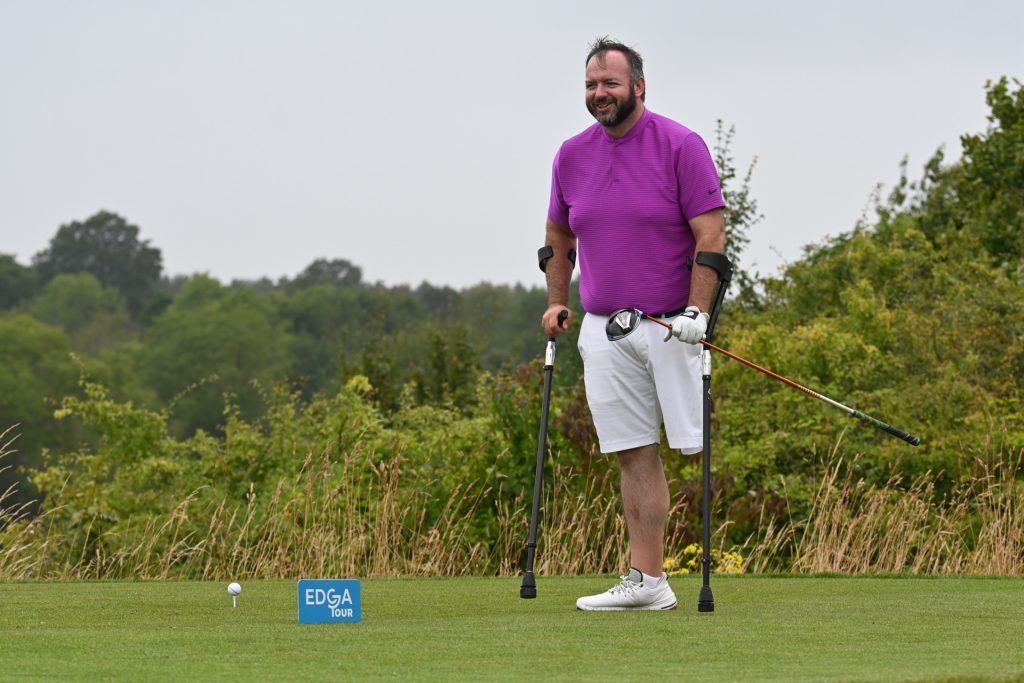
Chris Foster: Loving golf as a player and a coach
This friendly professional golfer talks modestly about the standards he sets himself in golf, and when he tells you of his early struggles and later what golf has offered him, you start to understand the inner passion that drives him onwards.
Chris Foster is also seen to smile a lot on the golf course.
The 36-year-old from Hertfordshire, England, clearly loves the game and what it keeps giving him, even under the close examination of the pressurised international tournament.
Chris can handle this pressure partly as he has the confidence of someone who has allied a natural talent with hard work to become a trained PGA Professional. His ability is evident from the ball striking, the way relaxed arms swing quickly through the ball in a captivating rhythm. The good players look great in that impact area and Chris fits the brief.
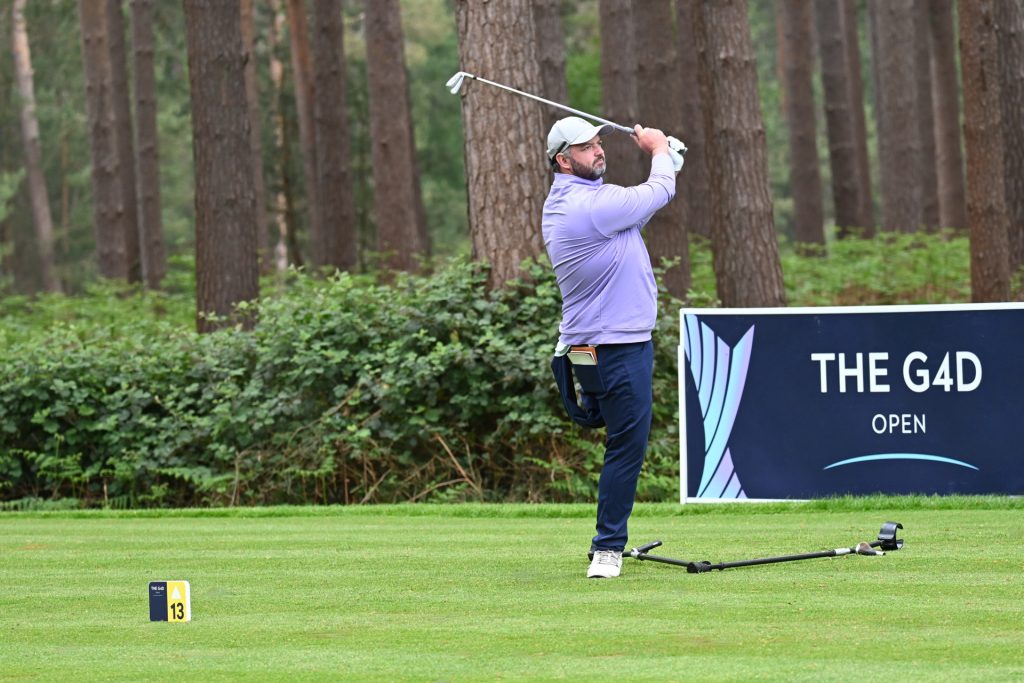
But another reason Chris smiles a lot is surely through recognising the opportunity golf offers him, through competition, social golf and, crucially in recent years, coaching many players – as an established PGA Professional at Hanbury Manor Golf Club – including people with a disability.
Chris says: “As a player, I love the competition in golf. It’s you against the course, and there is the constant pursuit of perfection. As a coach, golf has also given me a career I care about. I love seeing players make progress, and the enjoyment they get from the little gains.”
At the age of five, Chris was diagnosed with bone cancer and underwent chemotherapy. However, the illness returned. At nine years old, doctors made the decision to amputate his left leg. Chris says: “It’s just one of those things. I was quite lucky that it happened when I was young, because you sort of adapt. I’ve had more years like this than with two legs, so I’ve learned to get on with it.”
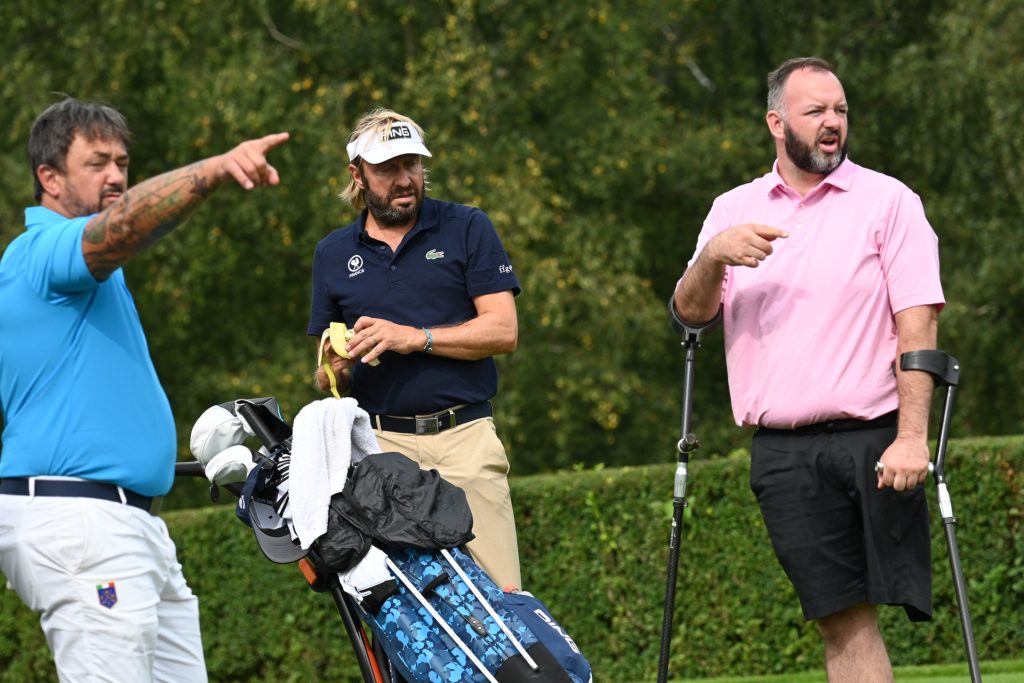
Sport became a big thing in Chris’s life as he developed. He swam for Great Britain, was a national 400m freestyle champion and he achieved a world record in the 1500m freestyle. He was part of the GB Paralympic swimming programme before a shoulder injury dashed his progress. He went on to represent England in amputee football, competing in two World Cups, and he played cricket for both England and Essex.
It was during this time that he discovered golf. Encouraged by his father and brother, Chris began hitting balls at the driving range. “I just fell in love with it really,” he recalls. “Then I found out I was getting good at it and decided I wanted to do my PGA and coach. That became my main focus and is to this day.”
Chris soon reached a handicap of 2 and in 2016 joined the PGA Foundation Programme. He went on to win the Hanbury Manor Pro-Am (Herts Alliance Event), before completing the PGA Foundation Degree in 2019 – believed to be the first amputee golfer to do so.
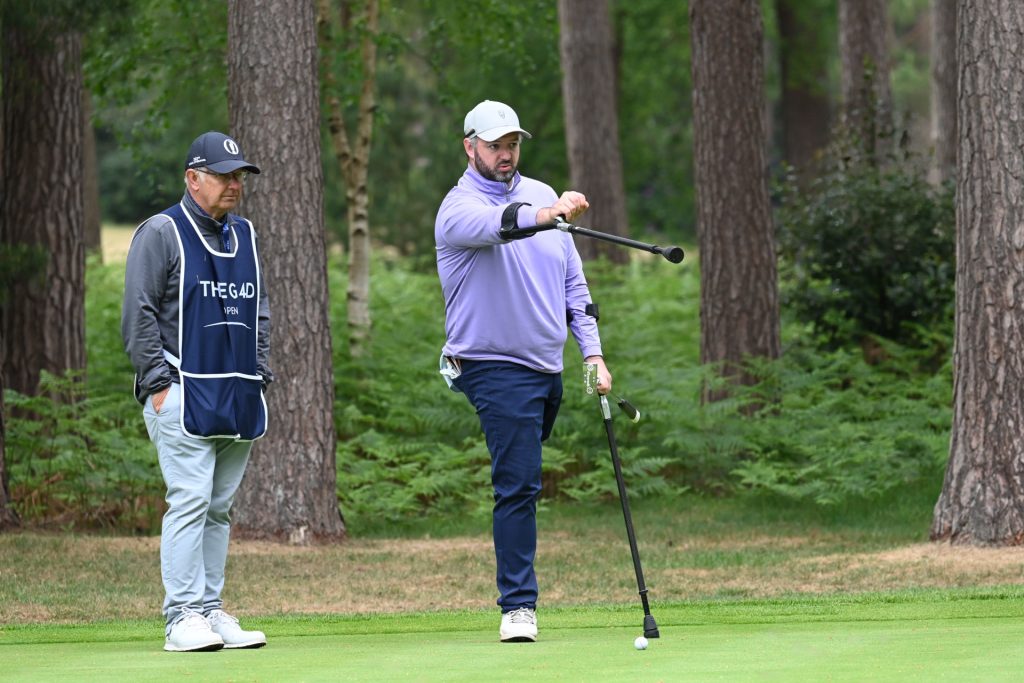
Chris chooses to play golf without a prosthetic. “Because I’m a through-hip amputee, the prosthetic wraps around my waist and stops you turning, so you don’t get the power. Without it, I’ve got the turn and balance — I lost my leg so young that I’ve learned how to use that to my advantage.”
No stranger to the leaderboards or winning G4D (golf for the disabled tournaments), Chris has also competed on the professional Clutch Tour and in regional PGA tournaments.
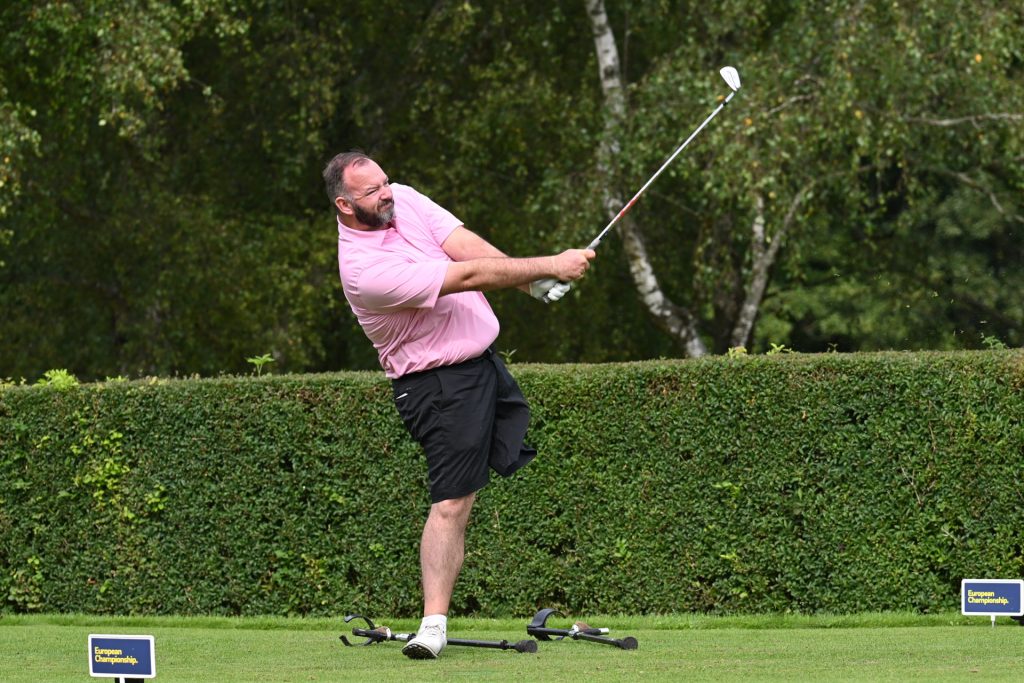
“I love the challenge of competing. How it isn’t just you against the field but more you against the course, and the contrasting difficulties each course brings. Being able to adapt is something most para golfers have done in their lives and it’s amazing to put that into a sport.”
In G4D, 2025 became something of a focus in his competitive play, on the days off from his coaching at Hanbury Manor, a club which Chris says has supported him a lot in recent years.
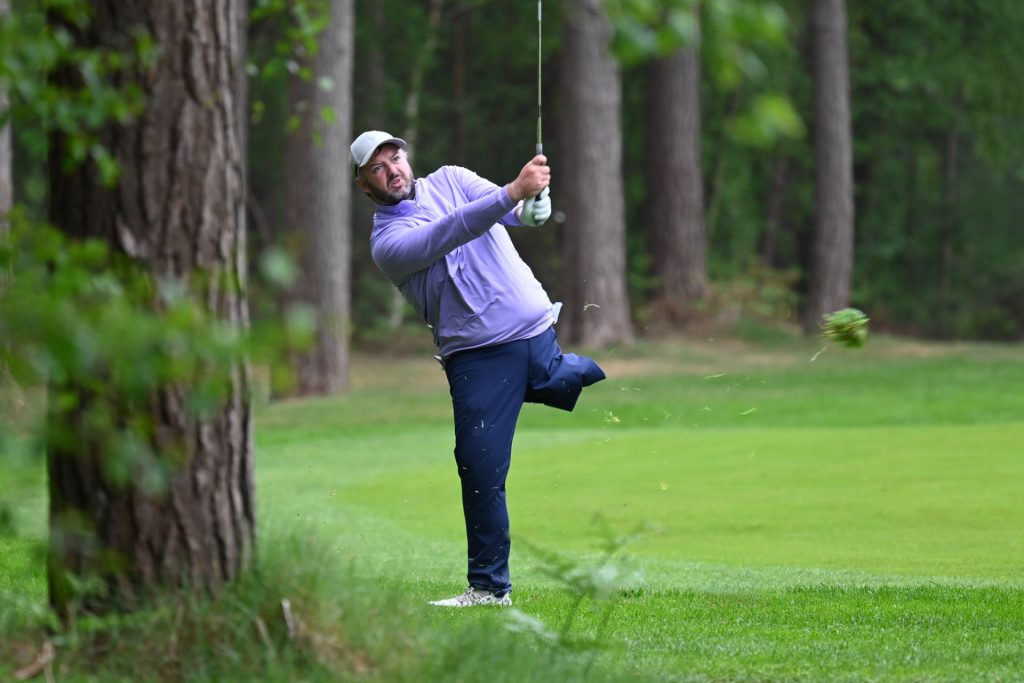
In 2025, Chris played in France, Belgium, Sweden and of course England, where he qualified for The G4D Open in Woburn in May, one of 80 players from 20 countries to take part in this championship staged by The R&A in partnership with the DP World Tour and supported by EDGA.
“The G4D Open was the pinnacle of disabled golf for me,” says Chris. “To feel like we were on display for our golf and not just our disabilities was an incredible experience; one I hope to have again, and hopefully to be in contention in future events.”
Chris was most pleased with his performance during the EGA European Individual Championship in Sweden in August. “Even though not my best event in terms of position and scoring, I learnt a lot about my game from this and showed some real positives that I’m taking into the off-season.”
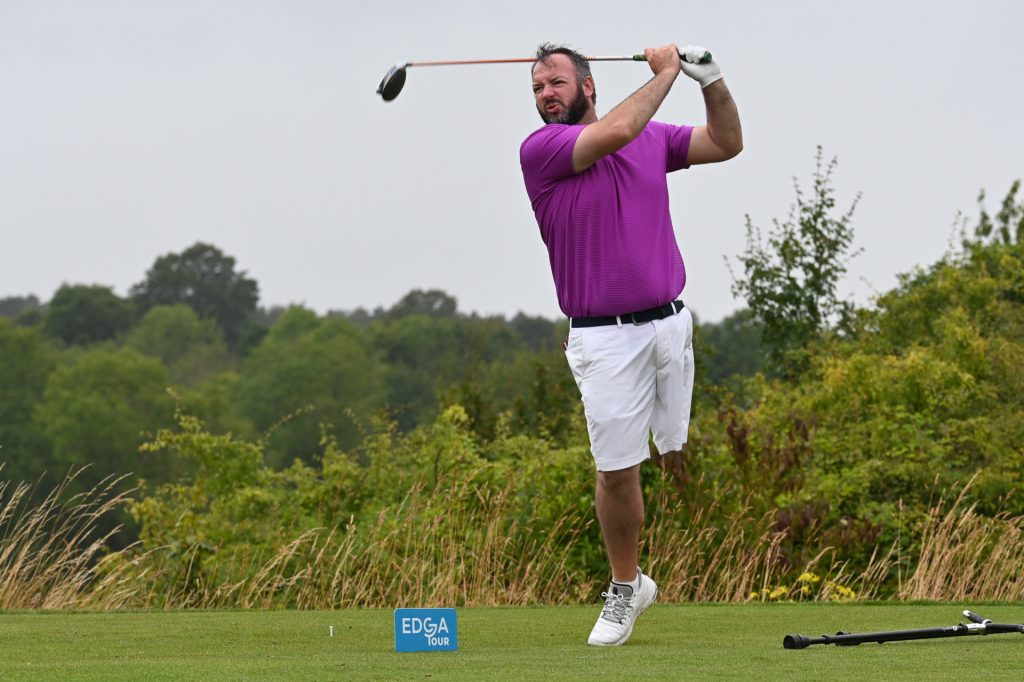
We were fortunate to speak with Chris the day after he had been working hard as a player at his first England Golf Disability Squad coaching session at Woodhall Spa in Lincolnshire.
As an ambassador for charity The Golf Trust, Chris has played his part in encouraging wider participation in the game. Of course, this now includes his work as a professional coach. His job is offering a thrill and satisfaction he had hoped for when he set out to qualify for The PGA; the realisation of the dream is proving to be hugely rewarding.
Chris says: “My coaching sums me up as a person, I love to help others to enjoy the game! I love seeing players thrive when something clicks. Whether it’s a new idea or a new skill learnt. Watching golfers develop at whatever level is why I wanted to coach and I feel I’m becoming quite good at it.
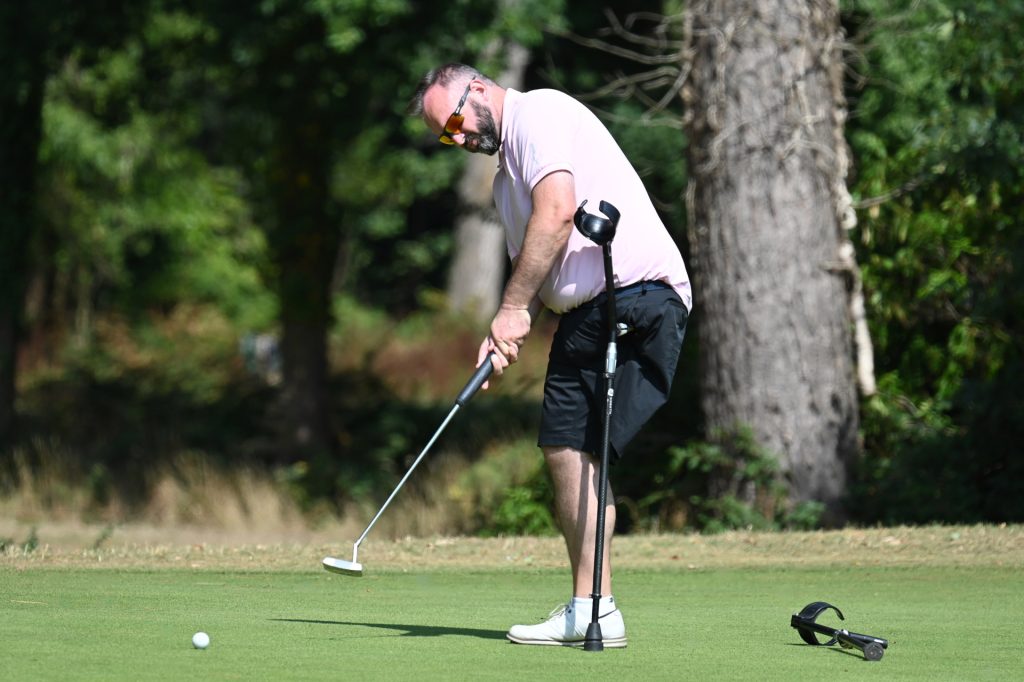
“For me, golf is for everyone. It’s the only sport that three generations of family can play together, whether it’s disabled, able bodied, male or female. No other sport is like that. The social aspect is amazing but also being outside and enjoying whatever the day brings.”
Chris usually smiles when he talks about playing or coaching in the game. That he takes that smile onto the course or the coaching ground says a lot about what the game offers us all, but equally reveals a lot about the man behind the smile, a demonstration of handling whatever life throws at us. And whether you are competing against him, or being coached by him, you guess the smile is more about taking on the challenges of the course in front of you and adapting to the challenge: getting the best out of yourself. How valuable is that?
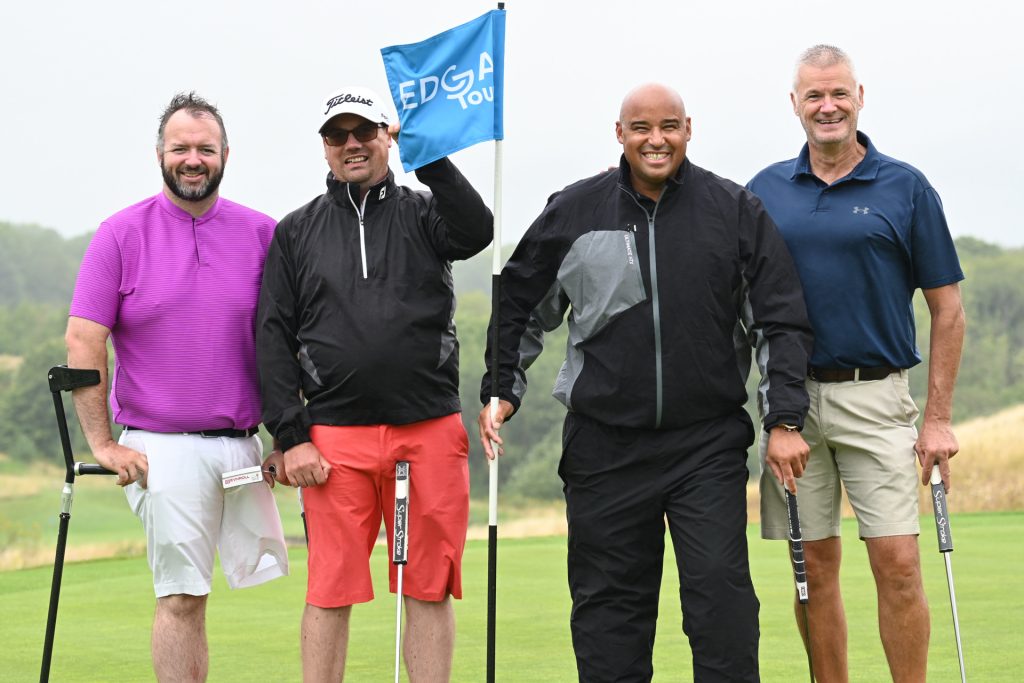
NB: When using any EDGA media, please comply with our copyright conditions


